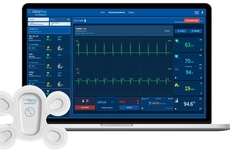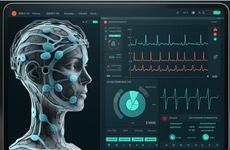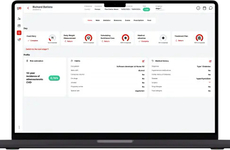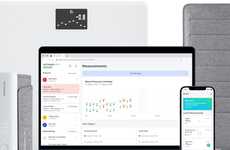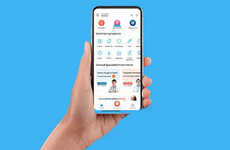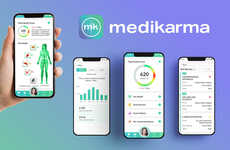
Vivalink Has Announced the Launch of New Patient Monitoring Tool
Niko Pajkovic — August 20, 2021 — Lifestyle
References: vivalink & mobihealthnews
Vivalink, a digital healthcare solutions company, has announced the launch of its enhanced 'Biometrics Data Platform' -- a unique digital tool designed to aid with the process of patient monitoring and data analysis for ambulatory and remote settings.
Using medical wearable sensors, the platform offers users remote data capture technology, as well as AI-powered analysis for decentralized clinical trials and virtual care. Users can expect continuous and episodic data capture, which is measured and managed via a clinical patient mobile app. Other features include remote data transfer and synchronization technologies, cloud-based applications, data visualization tools, automated data transformation, and more. The sensors used for the platform have been approved by the FDA and cleared for use in the United States, Europe, and China.
Image Credit: Shutterstock
Using medical wearable sensors, the platform offers users remote data capture technology, as well as AI-powered analysis for decentralized clinical trials and virtual care. Users can expect continuous and episodic data capture, which is measured and managed via a clinical patient mobile app. Other features include remote data transfer and synchronization technologies, cloud-based applications, data visualization tools, automated data transformation, and more. The sensors used for the platform have been approved by the FDA and cleared for use in the United States, Europe, and China.
Image Credit: Shutterstock
Trend Themes
1. AI-powered Biometric Health Monitoring - The use of AI-powered biometric sensors for remote monitoring and clinical trials disrupts traditional healthcare by enabling real-time data capture and analysis that enhances patient outcomes.
2. Virtual Care Technologies - Virtual care and remote monitoring solutions allow healthcare providers to deliver services and maintain contact with patients in a safe, cost-effective manner that can scale to reach large patient populations.
3. Cloud-based Healthcare Applications - Cloud-based healthcare applications enable providers to store, access and utilize patient data independent of geographic location or local storage conditions.
Industry Implications
1. Healthcare - Healthcare providers who adopt biometric sensors and virtual care technologies may enjoy increased efficiencies, improved patient outcomes, and market differentiation compared to traditional care models.
2. Wearable Technology - The use of wearable medical technology is expected to increase in the healthcare industry, as wearable sensors and AI-powered applications become more widely adopted.
3. Clinical Trials - Remote monitoring technologies can reduce the cost and burden of clinical trials, making it easier for companies to develop new treatments and therapies more quickly.
4.3
Score
Popularity
Activity
Freshness

